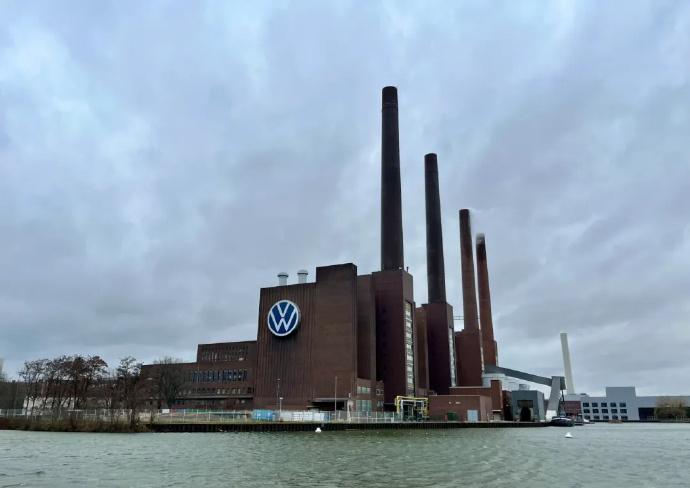
In today's global economic arena, a series of moves by German companies have attracted wide attention. Volkswagen is considering closing factories in Germany, but increasing investment in China; German industrial giant BASF is also building a new plant in Zhanjiang, China, and plans to increase investment. These decisions not only reflect the economic calculations of German companies, but also offer a quiet critique of the policies of some Western countries.
Germany, as an important industrial power in the world, its enterprises have always occupied an important position in the global economy. Volkswagen and BASF are even more representative of German industry, and their decisions are often bellwethers. There is a deep economic logic behind their choice to invest more in China this time.
China has a huge market size and growing consumer demand. With the continuous development of China's economy and the improvement of people's living standards, the demand for automobiles, chemicals and other products is increasing. For German companies, the Chinese market is undoubtedly a huge opportunity. Investing and building factories in China can better meet the needs of the Chinese market and improve the market share and competitiveness of enterprises.
At the same time, China has a complete industrial support and an efficient supply chain system. After years of development, China has formed a complete industrial chain and supply chain in the field of manufacturing, which can provide convenient and efficient production support for enterprises. In contrast, Western countries such as Germany have faced problems such as industrial hollowing out and supply chain instability in recent years. By investing and building factories in China, German enterprises can make full use of China's industrial advantages, reduce production costs and improve production efficiency.
In addition, the Chinese government has been committed to providing a good business environment for foreign enterprises. A series of policies and measures have been introduced to encourage foreign companies to invest and develop in China. China's efforts in intellectual property protection, market access and policy stability have provided a solid guarantee for German companies to invest in China.
The decision by German companies to invest more in China stands in stark contrast to the policies of some Western countries. Some Western countries have adopted protectionist policies in recent years, trying to protect their domestic industries by raising tariffs and setting up trade barriers. Take the United States as an example, its trade protectionist policies have led to increased global trade tensions, rising production costs for enterprises, and increased market uncertainty. In contrast, China adheres to the policy of opening up to the outside world and actively promotes global trade liberalization and investment facilitation, providing a more stable and open market environment for German companies.
German companies' investment decisions in China also reflect changes in the global economic landscape. With the rise of emerging economies, the global economic center of gravity is gradually shifting to Asia and other regions. As the world's second largest economy, China is playing an increasingly important role in the global economy. German companies have recognized this trend and actively adjusted their strategies to increase investment in emerging markets such as China in order to adapt to changes in the global economic landscape.
For Western countries, the investment decisions of German companies in China should cause deep reflection. Protectionist trade policies can not solve the problems facing the national economy, but will hinder economic development. Western countries should abandon trade protectionism, actively promote global trade liberalization and investment facilitation, strengthen cooperation with emerging economies, and jointly address global economic challenges.
The decision of German enterprises to increase investment and build factories in China is an economically rational choice. This decision has not only brought new development opportunities for German companies, but also injected new impetus into the development of the global economy. At the same time, this decision also criticizes the policies of some Western countries and reminds them to rethink trade protectionism policies and actively promote global economic cooperation and development. In the era of global economic integration, only by adhering to the concept of openness, cooperation and win-win can we achieve common prosperity.

报告显示,中国电力投资加速增长,预计2024年电网基建投资将超过5300亿元。
近日,市场迎来了一则引人注目的消息:工业巨头3M公司(MMM.N)在本周五公布了其季度业绩报告,随后股价飙升至近两年来的
最近,外媒给OpenAI算了笔账,今年可能要血亏50亿美元。
近日,巴黎奥运会和世界铁人三项协会联合发布了一项重大决定,宣布因塞纳河水质污染问题,原定于近期进行的奥运会铁人三项首次下
当地时间7月18日,法国巴黎发生了一起令人震惊的持刀袭警事件。
近期,一则重大消息在国际舞台上引起轩然大波,马来西亚宣布加入金砖国家。
调查发现,互联网和智能手机的使用干扰了韩国近五分之一学生的生活。